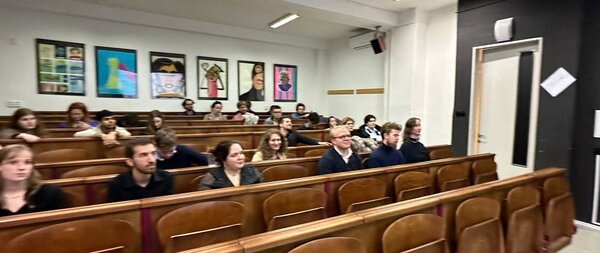At the DEUS workshop in Prague, educators from across Europe gathered to enhance their debate skills and strategies as part of IDEA’s ongoing commitment to educational enrichment and professional development. The workshop aimed to strengthen participants' ability to use debate as a tool to address disinformation and societal polarisation—issues that are becoming increasingly critical in Europe today. Educators were trained to foster discussions that address complex societal issues in a constructive and inclusive manner, with a specific focus on polarising topics such as economic inequalities, immigration, climate change, and the role of the European Union.
These topics are all intricately linked to the spread of disinformation, which often exploits societal divides by promoting false narratives. Economic disparities, for example, have been a source of significant division, and disinformation amplifies these tensions by spreading conspiracies around wealth redistribution or manipulating economic crises. Similarly, debates around immigration have been distorted by conspiracy theories such as the "Great Replacement," which falsely suggests a deliberate attempt to alter Europe’s demographic landscape. Disinformation around climate change, often denying human-caused environmental damage or suggesting hidden agendas behind environmental policies, has further polarised public opinion.
To address these issues, the workshop employed a range of debate techniques designed to foster critical thinking and improve media literacy. Educators were encouraged to explore how these techniques could be incorporated into their teaching practices to help students engage with controversial topics in a balanced and informed manner.
The methodology used during the DEUS workshop emphasized active learning. Rather than passively receiving information, participants engaged directly with debate activities, role-plays, and real-time discussions. Exercises like "Spot the Bias" and "Walk in My Shoes" allowed participants to critically examine their own perspectives and understand the viewpoints of others, fostering empathy—an essential component for reducing polarisation. These activities helped educators not only practice the debate techniques but also develop the skills needed to navigate complex, polarising topics in a thoughtful way.
A notable feature of the methodology was the depolarized debate format, designed to avoid reinforcing extreme positions. This format encouraged participants to find common ground, acknowledge different perspectives, and emphasize compromise, contrasting with traditional adversarial debates. Through exercises like role-playing constructive political discussions, participants learned to engage in respectful, solution-oriented debates rather than simply trying to win arguments.
By integrating real-world scenarios, particularly those related to disinformation and polarisation in the European context, the workshop ensured the debates were relevant and applicable to the challenges educators face. Participants debated contemporary issues such as Euroscepticism, immigration, and climate change disinformation, providing practical, real-time applications for the skills they developed. This combination of interactive learning, depolarized debate formats, and real-world relevance empowered educators to effectively address polarisation and disinformation in their own educational settings, equipping them with the tools to foster more inclusive and balanced discussions.






